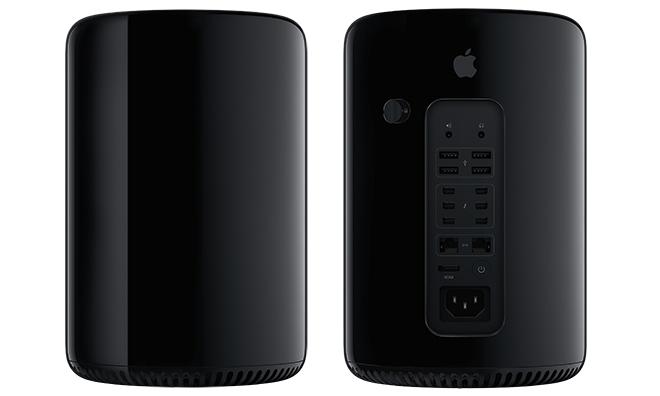In a blog post on Friday, former Apple ad consultant Ken Segall reveals Steve Jobs once considered killing off the company's professional product offerings, including the Mac Pro and software like Final Cut Pro.
Apple has long been known as one of the few computer makers to cater to both consumers and professional users, but Segall says that at one point, Jobs had reservations about continuing the company's pro lineup.
"His rationale was as you might expect: consumer products have an unlimited upside, while pro products are aimed at a niche market that eats up major resources," Segall says.
Jobs weighed the options before airing his idea at an ad agency meeting. This was apparently during a time when Apple's iMac had just become a global bestseller.
"Obviously, the pro market has value for Apple, even if its numbers are relatively small," Segall notes. "Pros are opinion leaders, influencers and evangelists. Their love of Apple shows up in the purchase decisions of friends, family and colleagues."
In the end, Jobs obviously decided to stick with the program, though Segall suggests Apple's philosophy on what it considers "pro" may have changed over the years. For example, the latest Final Cut X has been streamlined with an easy-to-use interface moving toward the look of iMovie. Professional users were vocal about the changes Apple made to the vaunted program, but the decisions, as well as the lower price of entry, brought in a wider audience.
A similar change is coming in hardware as the Mac Pro finally gets a redesign after years of being passed over. The new sleek black cylinder boasts a user-friendly design with easy expansion via six Thunderbolt 2 ports, four USB 3.0 ports and two Gigabit Ethernet ports.
Unlike the previous Mac Pro, the next-generation model has little to upgrade internally, but it does offer a consumer-minded design. Some professional users may be turned off by the changes, but the tweaks could bring renewed consumer interest in standalone towers, a segment of the industry moving toward extinction.
Segall ends with a provoking thought. Of all the pro products, Apple has killed off only one major hardware design: the 17-inch MacBook Pro.
"Unless you believe that in the future pros will suddenly prefer working on smaller screens, it’s hard to see this as a positive development," Segall writes. "Of course all will be forgiven if that little baby were to come back, all nice and Retina-ized…"
 Mikey Campbell
Mikey Campbell







-m.jpg)






 Malcolm Owen
Malcolm Owen
 Amber Neely
Amber Neely


 Christine McKee
Christine McKee

 Chip Loder
Chip Loder
 Marko Zivkovic
Marko Zivkovic









132 Comments
Jobs considered various options before making decisions. Why is that news to anyone?
could be argued either way if you look at the technology that came out of the NeXT acquisition.
Jobs considered various options before making decisions.
Why is that news to anyone?
Indeed, and this particular consideration shouldn't be surprising at all. It seems like something he would have thought up in the first place. Seems a shame to want to destroy something so great and industry-leading as Final Cut and Logic are, but Jobs was also a pragmatist. In '96, after the NeXT purchase but before being declared interim CEO, he said it might be a good idea to let the cloners do their thing. "Apple should strive to just make better hardware than any of them!" or something along those lines. He also said "milk the Mac for all it's worth and move on to the next great thing." Really, that last one could be argued as happening. I don't see the traditional keyboard+mouse+computer setup lasting beyond 2020.
i'm gonna go out on a limb here and submit for debate that steve often considered many things.
Indeed, and this particular consideration shouldn't be surprising at all. It seems like something he would have thought up in the first place. Seems a shame to want to destroy something so great and industry-leading as Final Cut and Logic are, but Jobs was also a pragmatist. In '96, after the NeXT purchase but before being declared interim CEO, he said it might be a good idea to let the cloners do their thing. "Apple should strive to just make better hardware than any of them!" or something along those lines. He also said "milk the Mac for all it's worth and move on to the next great thing." Really, that last one could be argued as happening. I don't see the traditional keyboard+mouse+computer setup lasting beyond 2020.
Just don't underestimate the "Pro" that actually need a classic desktop in order to create and produce. I'm not seeing the need for classic work stations for essential things, such as software development going away any time soon. My guess is we'll still see them around long after 2020, just perhaps not in households that much but at workplaces. Certainly they will also cost a premium by then.